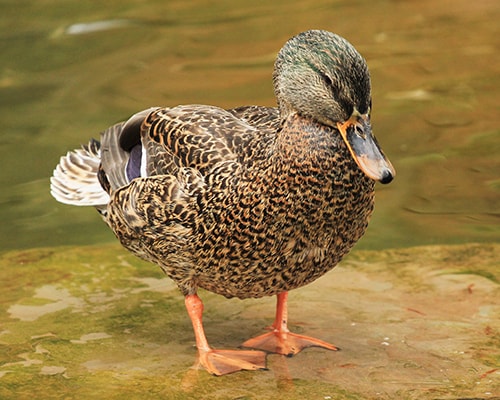You have questions. We have answers.
Here are answers to common wildlife questions we receive each year:
Never put your own safety at risk trying to help wildlife. If you can safely capture the animal, place it in an escape-proof box (with air holes) not much bigger than the animal itself. Do not offer food or water as it may harm or even kill the animal. Place it in a dark, quiet location until it can be transported to the Center for a medical examination.
Baby wildlife is rarely abandoned in nature. A fawn lying quietly by itself with no mother in sight is perfectly normal. Deer do this to protect their young, as the presence of an adult could attract the attention of predators.
Live trapping and removing of nuisance animals will not permanently solve the problem. Preventative measures must be taken to solve the issue, such as securing garbage and not feeding animals.
Please do not feed baby animals. Each species requires a specialized diet and feeding an animal to retrieve their babies when they end up out of the nest too early.
A baby bird with skin still visible or only covered in downy feathers should be placed back in the nest or in an artificial nest. If fully feathered but unable to fly, the bird is a fledging that should be left alone to learn critical survival behaviors.
Eastern Cottontail Rabbits often build their nests in yards and open spaces. If you stumble across one of their nests, do not move the baby bunnies because their mother will be unable to find them. She will return at dusk and dawn to feed and groom her babies.
Coyotes are common throughout Ohio in both rural and urban settings. They are most active at dawn and at dusk. To coexist with coyotes in your neighborhood, eliminate hiding cover in landscaping and dwellings. Make sure to securely store garbage, seed and pet food. Always supervise pets while they are outdoors.

Still have an unanswered question?
If you find an animal you believe to be ill, injured or orphaned, please call the Center’s wildlife staff at 440-871-2900 before intervening.
Wildlife intakes of injured animals from the public are offered at no charge. Due to high demand for our services, please anticipate leaving a message for our wildlife specialists who will return your call.
If you would like to check on an animal that you recently brought in for treatment and have its intake number, or for general wildlife questions, please email wildlife@lensc.org. Please do not use email or our contact form for time-sensitive questions.

